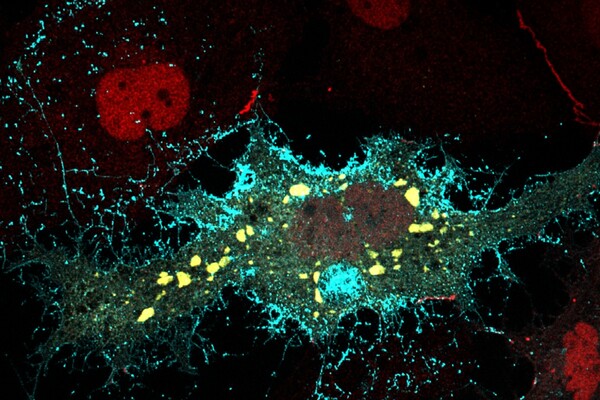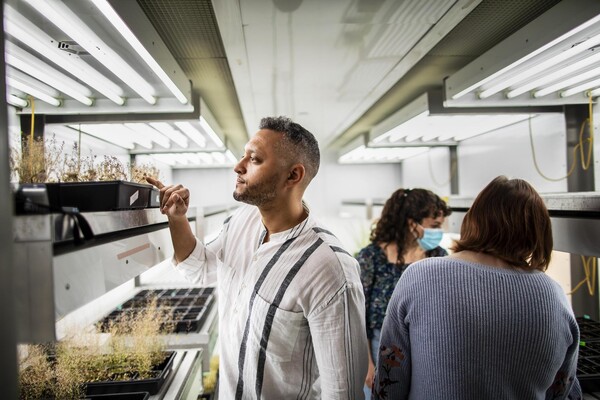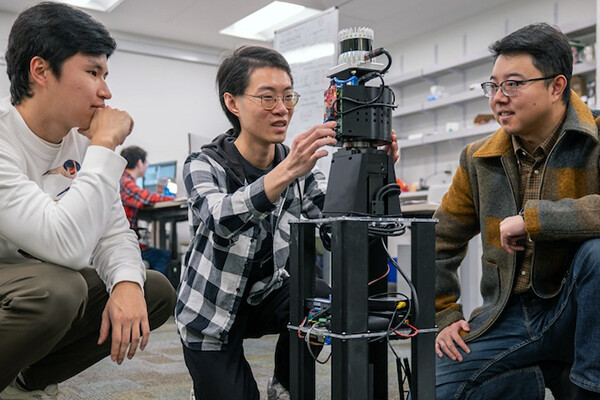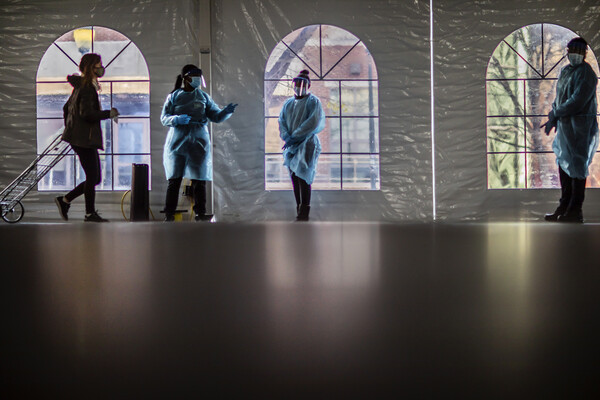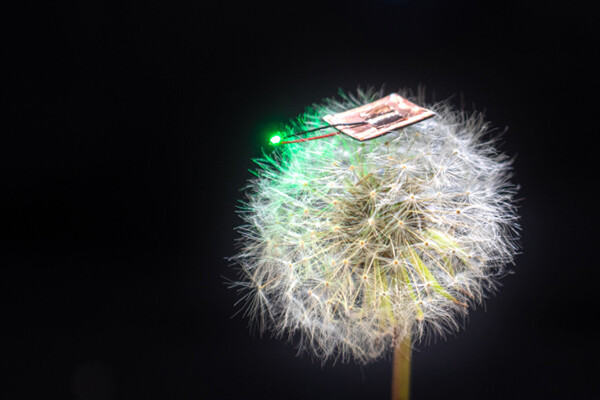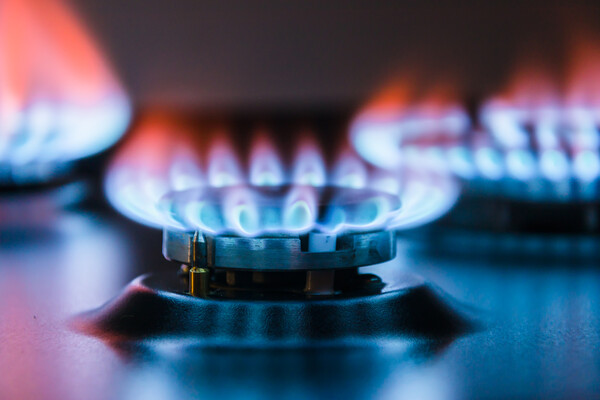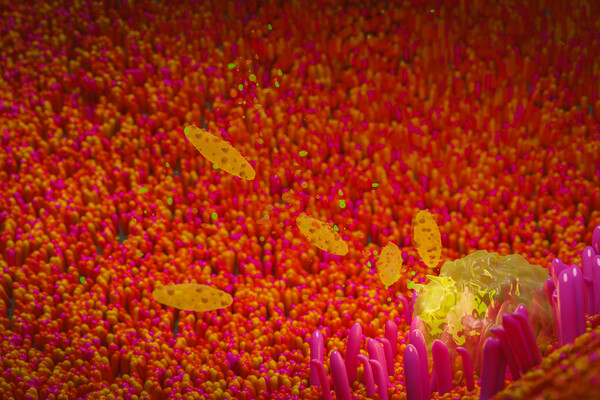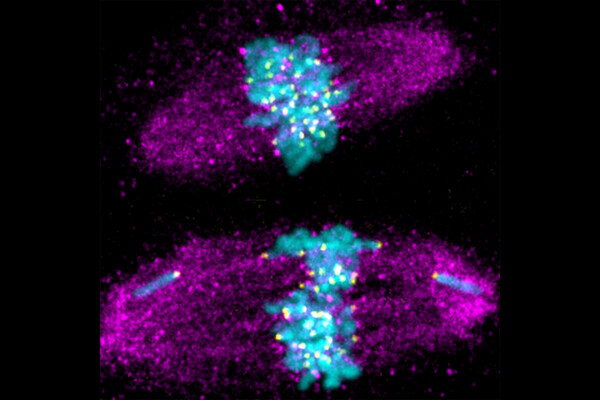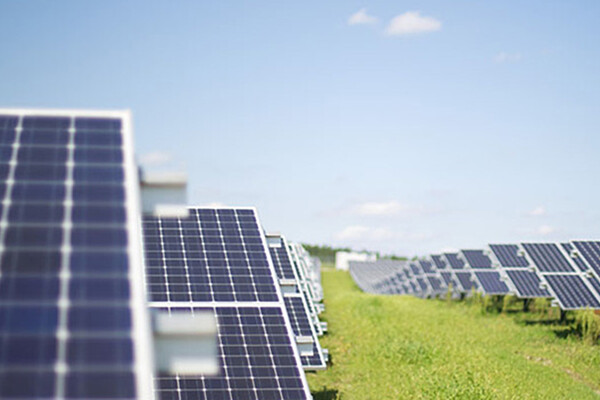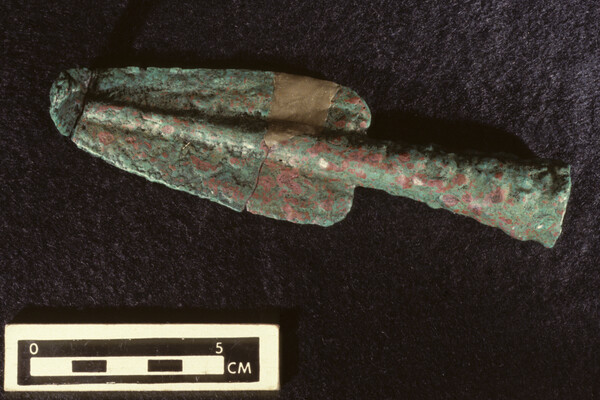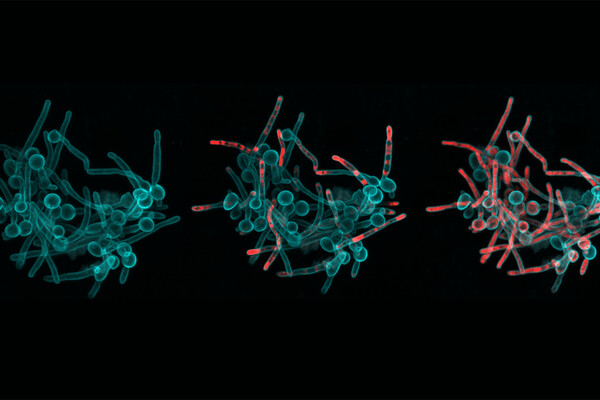11/15
Science & Technology
Penn Engineering’s ENIAD sets new world record for energy-efficient supercomputing
ENIAD, named after ENIAC, the world’s first digital computer, which was developed at Penn 75 years ago, took the top spot among a list of 500 of the most energy-efficient supercomputers reported in the world.
A how-to guide for Gateway testing
Penn Today provides details on the Penn Cares testing program and how undergraduate and graduate students can fulfill their Gateway testing requirements.
Packaging-free design quadruples microbatteries’ energy density
New research from the School of Engineering and Applied Science shows a new way to build and package microbatteries that maximizes energy density even at the smallest sizes.
Identifying an elusive molecule key to combustion chemistry
Researchers made the most direct observation of a key intermediate formed during the breakdown of hydrocarbons during combustion and in the atmosphere, results that could help in the future design of fuels that burn more efficiently.
Tracking the earliest steps in parasite infection
The parasite Cryptosporidium, a leading global cause of diarrheal diseases in children, injects host cells with a cocktail of proteins. Using powerful video microscopy, School of Veterinary Medicine researchers tracked the process in real time.
Rewiring cell division to make eggs and sperm
Research by the School of Arts & Sciences’ Michael Lampson and Jun Ma, collaborating with Whitehead Institute researchers, reveals how a key protein enables the process of meiosis to unfold.
Support and inspiration for undergrads pursuing careers in health care
The three-day-long National Pre-Health Conference, the brainchild of rising senior Alejandra Bahena, begins Aug. 4.
On-farm opportunities and challenges for solar development
On-farm solar development is increasingly becoming a financially viable and environmentally friendly alternative on American farmland.
Metal artifacts in Southeast Asia challenge long-held archaeological theory
According to the Penn Museum’s Joyce White and Elizabeth Hamilton, prehistoric communities, rather than the ruling elites, in Thailand were the deciders in how to use metal resources.
New engineering approaches to address unmet oral health needs
With a new NIH training grant, awards, and new faculty and publications, the recently launched Center for Innovation & Precision Dentistry is leveraging technological advancements to improve oral health.
In the News
Grumpy voters want better stories. Not statistics
In a Q&A, PIK Professor Duncan Watts says that U.S. voters ignored Democratic policy in favor of Republican storytelling.
FULL STORY →
Climate policy under a second Trump presidency
Michael Mann of the School of Arts & Sciences discusses how much a president can do or undo when it comes to environmental policy.
FULL STORY →
Exxon CEO wants Trump to stay in Paris climate accord
Michael Mann of the School of Arts & Sciences voices his concern about the possibility that the U.S. could become a petrostate.
FULL STORY →
Superhuman vision lets robots see through walls, smoke with new LiDAR-like eyes
Mingmin Zhao of the School of Engineering and Applied Science and colleagues are using radio signals to allow robots to “see” beyond traditional sensor limits.
FULL STORY →
A sneak peek inside Penn Engineering’s new $137.5M mass timber building
Amy Gutmann Hall aims to be Philadelphia’s next big hub for AI and innovation while setting a new standard for architectural sustainability.
FULL STORY →
Amid Earth’s heat records, scientists report another bump upward in annual carbon emissions
Michael Mann of the School of Arts & Sciences says that total carbon emissions including fossil fuel pollution and land use changes such as deforestation are basically flat because land emissions are declining.
FULL STORY →
How can we remove carbon from the air? Here are a few ideas
Jennifer Wilcox of the School of Engineering and Applied Science and Kleinman Center for Energy Policy at the Weitzman School of Design says that the carbon-removal potential of forestation can’t always be reliably measured in terms of how much removal and for how long.
FULL STORY →
California air regulators approve changes to climate program that could raise gas prices
Danny Cullenward of the Kleinman Center for Energy Policy at the Weitzman School of Design says that many things being credited in California’s new climate program don’t help the climate.
FULL STORY →
Self shocks turn crystal to glass at ultralow power density: Study
A collaborative study by researchers from the School of Engineering and Applied Science has shed new light on amorphization, the transition from a crystalline to a glassy state at the nanoscale.
FULL STORY →
Climate scientists fear Trump will destroy progress in his second term – and the outcome could be ‘grim’
Michael Mann of the School of Arts & Sciences says that a second Trump term and the implementation of Project 2025 represents the end of climate action in this decade.
FULL STORY →




